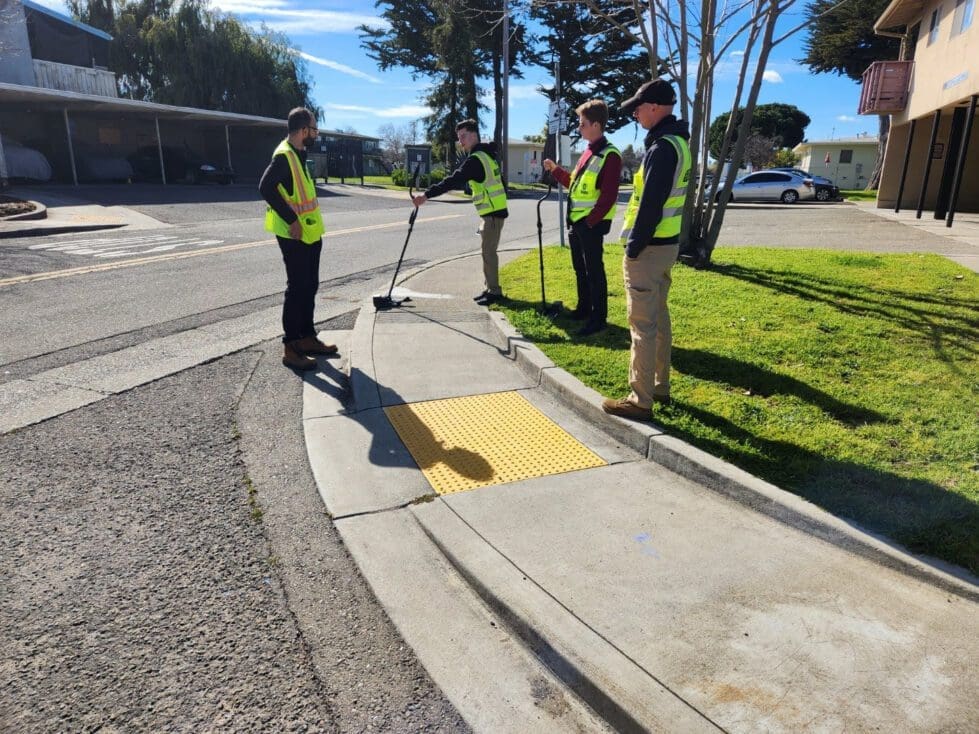Teams of engineers will be spending the next few weeks focused on Wilmington sidewalks, as part of a larger effort to make the city safe and accessible for people with disabilities.
The goal is to be in complete compliance with the Americans with Disabilities Act, which was enacted in 1990 to ensure that people with disabilities are guaranteed access to all programs and services provided by state and local governments.
Notably, the act has required state agencies to reconstruct several areas of public accommodations and public facilities. This usually includes making sure there’s ramps to buildings, and public places like parks and libraries are easily accessible.
Wilmington Mayor Mike Purzycki said Wednesday that the city aims to become a model of accessibility and is well on its way to being a more welcoming city to all its residents and visitors.
“Our mission is to create a city where businesses invest and thrive, and our neighborhoods are safe and beautiful,” he said.. “What’s more, I’ve often spoke of making Wilmington a more ‘just city,’ a concept whose centerpiece is the idea that justice and respect are the principles that guide our actions and decisions each and every day.”
Making Wilmington more readily accessible to those residents and visitors who face varying physical challenges, he said, is an essential component of that idea, and in doing so everyone wins.
“We are carrying out this assessment not merely because it is legally required, but because it is the right thing to do,” Purzycki said.
In 2018 Wilmington contracted with Bureau Veritas, a Maryland-based audit and certification services firm, to conduct a Comprehensive Accessibility Evaluation of all city properties in accordance with state and federal law.
Following site visits by architects and engineers in June 2018 and January 2020, and after consultation with city staff members, Bureau Veritas issued an initial Transition Plan report covering City structures, public buildings, and parks in March 2020.
The next phase of this Americans Disabilities Act self-assessment involves public rights-of-way, such as sidewalks and alleyways, and will be conducted by Bureau Veritas assessors from now until late October, then resume later in 2024.
The assessments will be minimally invasive, with equipment that does not generate any noise and data being collected quickly. Once completed, Bureau Veritas will submit to the city a final Transition Plan, as required by the law.

Raised in Doylestown, Pennsylvania, Jarek earned a B.A. in journalism and a B.A. in political science from Temple University in 2021. After running CNN’s Michael Smerconish’s YouTube channel, Jarek became a reporter for the Bucks County Herald before joining Delaware LIVE News.
Jarek can be reached by email at [email protected] or by phone at (215) 450-9982. Follow him on Twitter @jarekrutz
Share this Post





